The Jewish celebration of Passover and the Christian observation of the death and resurrection of Yeshua from the grave (generally referred to as “Easter”) are often observed on the same weekend, however, in some years they can be observed up to a month apart. The connection between Passover and the death and resurrection of Yeshua are not coincidence but rather Providence. Along the path of history, however, these two events have been separated both in meaning and how they are calculated on the calendar. The result has been a loss of understanding of the events that surrounded the death and resurrection of Yeshua the Messiah as it relates to the Passover.
In Israel I often engage in conversation with both secular and religious Jews in defense of Yeshua as the Messiah and regarding the credibility of the New Testament. Jewish people will often refer to certain contradictions that they perceive to be in the New Testament which keep them from going forward in even considering Yeshua as the Messiah. In every challenge that I’ve been faced with I’ve had to research, study, pray, and seek God for the answers. My mind is very mechanical and it won’t rest until I find answers to the supposed contradictions that I’ve been faced with in the Word of God. Thankfully, God is always faithful to provide what I need when I need it.
How Many Days and Nights was Yeshua in the Grave?
One issue that I have had to think hard about throughout the years is the seeming contradiction regarding the days of Yeshua’s “Last Supper” with His disciples, which was a Passover observance, and the timing of Yeshua’s death on the cross. According to Christian tradition, Yeshua was crucified on a Friday, which has been termed “Good Friday.” Was Yeshua really crucified on Good Friday? If He was crucified on a Friday, how do we justify His shortened stay in the grave?
If we accept the traditional view of Friday as the day that Yeshua was crucified, how is it possible that He was three days and three nights in the grave? According to this view, Yeshua was in the grave Friday, Saturday, and Sunday. This would be three days, however, this is only two nights. Yeshua Himself stated that He would be in the grave for three days and three nights:
Then some of the scribes and Pharisees said to Him, “Teacher, we want to see a sign from You.” But He answered and said to them, “An evil and adulterous generation craves for a sign; and yet no sign will be given to it but the sign of Jonah the prophet; for just as Jonah was three days and three nights in the belly of the sea monster, so will the Son of Man be three days and three nights in the heart of the earth.” – Matthew 12:38-40
It is clear from Yeshua’s own words that He would be three days and three nights in the heart of the earth, the grave. Yeshua could have said three days and two nights but He didn’t. He said THREE DAYS AND THREE NIGHTS! Since we know from the Scriptures that Yeshua rose from the grave on the first day of the week, Sunday, there is either a problem with the Word of God or Friday is not the day!
How do we remedy this apparent inconsistency in the Scriptures?
 Either Yeshua was three days and three nights in the earth or He wasn’t!
Either Yeshua was three days and three nights in the earth or He wasn’t!
Why does Christianity traditionally teach that Yeshua was crucified on Friday?
I believe all of the above questions can be answered through a careful study of God’s Word combined with a proper understanding of Jewish culture and tradition. Let’s begin with a look at the accounts in the Gospels surrounding the final days of Yeshua’s life before He was crucified.
The Gospel of Matthew
In the book of Matthew we read that Yeshua had His disciples prepare a Passover meal:
Now on the first day of Unleavened Bread the disciples came to Jesus and asked, “Where do You want us to prepare for You to eat the Passover?” And He said, “Go into the city to a certain man, and say to him, ‘The Teacher says, “My time is near; I am to keep the Passover at your house with My disciples.”’ The disciples did as Jesus had directed them; and they prepared the Passover. Now when evening came, Jesus was reclining at the table with the twelve disciples. Matthew 26:17-20
Yeshua sent His disciples to go and prepare a place for them to celebrate the Passover. That same evening they sat down and ate the Passover meal together. This was the same night that Yeshua was arrested.
The Gospel of Mark
A similar account is recorded in Mark 14:12-17. In fact, Mark added an important detail that makes it quite clear that the day that this took place was on the first day of Passover:
On the first day of Unleavened Bread, when the Passover lamb was being sacrificed, His disciples said to Him, “Where do You want us to go and prepare for You to eat the Passover?” – Mark 14:12
It is interesting to note that the scenario recorded in this account is culturally very Israeli, very Middle Eastern. They waited until just hours before the Passover was to begin to figure out where to celebrate the feast! It was the 14th of Nisan, according to the Jewish calendar, the day when the Passover lamb was to be slaughtered. That evening would be the evening of Passover followed by the first day of the Feast of Unleavened Bread, the 15th of Nisan. It was on that evening when the day turned from the 14th to the 15th that Yeshua had the Passover meal with His disciples. In Judaism, and in the Bible, a day always begins on the evening before (Gen. 1:5).
The Gospel of Luke
The gospel of Luke further clarifies that Yeshua and His disciples ate the Passover meal together:
Then came the first day of Unleavened Bread on which the Passover lamb had to be sacrificed. And Jesus sent Peter and John, saying, “Go and prepare the Passover for us, so that we may eat it.” They said to Him, “Where do You want us to prepare it?” And He said to them, “When you have entered the city, a man will meet you carrying a pitcher of water; follow him into the house that he enters. And you shall say to the owner of the house, ‘The Teacher says to you, “Where is the guest room in which I may eat the Passover with My disciples?”’ And he will show you a large, furnished upper room; prepare it there.” And they left and found everything just as He had told them; and they prepared the Passover. When the hour had come, He reclined at the table, and the apostles with Him.” – Luke 22:7-14
We can conclude from these three accounts of Matthew, Mark, and Luke that Yeshua ate the Passover meal on Erev Pesach, the evening of the Passover, as is the custom even until today.
The Gospel of John
The Apostle John, however, seems to paint a different picture of what happened during these days. Speaking of the time when Yeshua had the meal with His disciples, we read in the book of John, “Now before the Feast of the Passover” (John 13:1). John seems to be saying that the meal that Yeshua had with his disciples took place before the Passover.
We also read in the gospel of John that the Religious Jews would not enter Pilate’s quarters on the morning when Yeshua was being sentenced because they wanted to eat the Passover (John 18:28). How can they eat the Passover if the evening of Passover had already passed? Maybe they were referring to the week of Passover, the week of eating unleavened bread, however, as we continue to read we see evidence of preparation for the Passover after Yeshua had already eaten the Passover with His disciples (John 13) and had already been arrested (John 18:12):
Now it was the day of preparation for the Passover, it was about the sixth hour. – John 19:14
Then the Jews, because it was the day of preparation, so that the bodies would not remain on the cross on the Sabbath (for that Sabbath was a high day), asked Pilate that their legs might be broken, and that they might be taken away. – John 19:31
In the gospel of John we read that the day that Yeshua was arrested, sentenced, and crucified was called a day of preparation for the Sabbath. This is where Christian tradition has assumed that this preparation day was for the regular Sabbath day, the seventh day of the week, which in Modern English is called Saturday. It has therefore been concluded that the preparation day was Friday, the day before Saturday, however, this is not consistent with the whole of the text in John 19. We just read in John 19:14 that it was “the day of preparation for the Passover.” John also referred to this Passover day as a Sabbath and even emphasized that this particular Sabbath was a “high day.” What is the connection between Passover and the Sabbath day?
The Sabbath Principle
It is vital to understand the full meaning of the Sabbath in order to make sense of this whole situation. The Sabbath is a foundational teaching in the Bible. The Sabbath is a continual reminder of creation and of the God of creation as mankind is commanded to work six days a week and rest one day as God did (Gen. 2:1-3). The Sabbath is also foundational to understanding all of the Biblical Holidays (or the appointed times of the LORD): Passover, The First Fruits, The Feast of Weeks (Shavuot), Rosh Hashannah (The Feast of Trumpets), Yom Kippur (The Day of Atonement), and The Feast of Tabernacles.
All of these Jewish Holidays incorporate some aspect of a Sabbath day, meaning a day when work is forbidden and a day when rest is commanded (Lev. 23). The Scriptures are clear regarding how the Sabbath principle is related to the Passover:
These are the appointed times of the LORD, holy convocations which you shall proclaim at the times appointed for them. In the first month, on the fourteenth day of the month at twilight is the LORD’s Passover. Then on the fifteenth day of the same month there is the Feast of Unleavened Bread to the LORD; for seven days you shall eat unleavened bread. On the first day you shall have a holy convocation; you shall not do any laborious work. But for seven days you shall present an offering by fire to the LORD. On the seventh day is a holy convocation; you shall not do any laborious work. – Lev. 23:5-8
The first and seventh days of the week of Passover are considered to be “Sabbath days,” days of rest. The first day of Passover is considered one of the highest Sabbath days of the year because the Passover is the first holiday on the Jewish calendar and it is the event that defines the Jewish people even until today (Ex. 12:1-20. 34:18. Num. 28:16-25).
Therefore we can conclude that the high Sabbath day that John referred to in his gospel account was the Passover day, as he clearly stated (John 19:14). However, if this is so, why does it seem like John is referring to a Passover day which was still to come? Didn’t all of the Jewish people along with Yeshua and His disciples celebrate Passover the evening before?
Is There a Contradiction in the Scriptures?
Matthew, Mark, and Luke all state in their respective gospel accounts that Yeshua had the Passover with His disciples and was later arrested that night. According to the account in John, however, Passover was only beginning the day after Yeshua was arrested and crucified. How do we resolve this supposed “double account” of the Passover?
The Practice of Passover
I was not raised in a religious Jewish home, so I was not completely familiar with all of the rules and regulations of the Jewish lifestyle and holidays when I was growing up. I celebrated Passover from time to time but it wasn’t until my first trip to Israel in 1995 that I celebrated a full Passover meal with an Orthodox Jewish family in the Old City of Jerusalem. The family that I celebrated the Passover with was an American family who lived in the USA most of the year but they also owned a home in the Old City of Jerusalem and would come to Jerusalem each season for the holidays.
That Passover in Jerusalem was a powerful and life changing evening as I spent the whole “Layla Seder” (Passover Seder night) with this family. We read through the whole “Haggadah” (Passover booklet) and finished the traditional Passover Seder in the late hours of the night. When I was getting ready to leave at about 1:00 am, I thanked the family for hosting me and the mother of the family then asked, “So we’ll see you tomorrow evening, right?” I asked “Why? What for?” The mother then informed me that we would be celebrating Passover again. It was a second night of Passover because they did not regularly reside in Jerusalem. I wasn’t familiar with this tradition, however, I accepted their invitation and went back for the second night of Passover. We celebrated the second night as we did the first night. We celebrated two days of the first day of Passover according to Jewish tradition!
Where does this practice of celebrating two nights of Passover originate?
The Lunar Cycle
As most of you know, the Jewish calendar is based on the lunar cycle, the cycle of the moon. In ancient times, the Jewish people would determine Rosh Hodesh (the new month) by the testimony of at least two witnesses before the beit din, the Jewish religious court. After the beit din approved the testimony of the two witnesses, riders would be sent out to alert the Jewish communities regarding the new moon, including the Jews who lived in the diaspora.
The moon revolves around the earth in a cycle of approximately 29 days, 12 hours, and 44 minutes. The new moon will appear either 29 or 30 days after the previous month, only counting full days. As a result of the irregular nature of the moon cycle and the complicated method of sending messengers on horseback, Jewish communities outside of Jerusalem and Israel were often beyond knowing exactly when the new month started until days later. To compensate for the delay in receiving notification of the New Moon from the beit din, Jewish communities in the diaspora would celebrate two days for each holiday, to ensure that they celebrated the right day, the day which God intended. This practice is called “Yom tov sheni shel gallut” – “The second day of holiday for the diaspora.”
A second day for every holiday commanded in the Torah is celebrated in the diaspora, except for one holiday, Yom Kippur. Since Yom Kippur is a fast day it is only observed for one day. Even today when Jews from the diaspora come to celebrate the Jewish holidays in Jerusalem they will hold to two days of celebration and observance in keeping with tradition. During the time of Hillel (330-365 AD), the last president of the Sanhedrin (not to be confused with Hillel HaGadol, a sage of Judaism from the time of Yeshua), another system of calculating the months and determining the holidays was instituted to provide a more consistent and accurate rendering of the new moon. Despite having this new system, those living outside of Israel still celebrate two festival days because it is “a tradition handed down by our fathers,” even until today. This is an example of the role that tradition has in the life of the Jewish people and the importance attached to maintaining the customs and preserving the historical continuity from one generation to the next (Lau, Rabbi Israel Meir, Practical Judaism, p, 206-208).
Rosh Hashanah (The Feast of Trumpets) is the only holiday today that is celebrated for two days consistently by all Jews, including those who continuously live in the Land of Israel. This is because Rosh Hashanah is the only holiday celebrated on the first day of the Hebrew month. To avoid any confusion regarding when the Rosh Hashanah holiday begins, it is simply celebrated for two days by all Jewish people, just to make sure that the right day is observed. Tradition!
A Logical Explanation Via Tradition
Tradition is the heart of Judaism. Tradition seems to be the answer to the supposed dilemma regarding the two days of Passover at the time of Yeshua. I would like to propose that God used Jewish tradition to allow His Son to celebrate the first day of Passover with His disciples to institute the New Covenant that He made. Yeshua took the cup after the meal, the third cup of redemption, together with the unleavened bread to symbolize His blood and His body respectively on the first day of Passover. Then on the following day, Yeshua actually became the Passover Lamb when He was crucified on the afternoon of the first day of Passover in preparation for the second day of Passover. Today Jews from outside of Israel still celebrate two days of Passover when they come to Jerusalem.
For any of my readers who struggle with the thought that God could or would use tradition as part of His plan, I would like to highlight another aspect of the Passover Seder of which tradition plays a huge part. Yeshua used a glass of wine to illustrate the New Covenant in His blood and He took the unleavened bread to illustrate His body which would be broken for us. The unleavened bread was taken from the biblical mandate of the Passover celebration, however, wine was never commanded to be drunk in connection to Passover. God commanded the partaking of three elements at the Passover celebration: lamb, unleavened bread, and bitter herbs (Ex. 12:8). Drinking four cups of wine at Passover is a Jewish tradition that was added somewhere along the way and Yeshua Himself used this tradition to illustrate the New Covenant in His blood. God uses tradition!
This revelation from tradition regarding the day of Passover seems to resolve the issue of the two Passovers but what about the problem of the three days and three nights? As was already explained earlier in this study, the “preparation day” on which Yeshua was crucified was the preparation day for the second day of Passover, which was also considered a Sabbath day. Therefore, we are not bound to Friday as being the day of crucifixion and burial. I would like to present the following timetable that fits perfectly into the biblical account together with Jewish tradition:
- Wednesday – The disciples of Yeshua prepared for the Passover on the day when the Passover lamb was killed.
- Wednesday Evening – The first evening of Passover. Yeshua celebrated the Passover meal with His disciples.
- Wednesday night/Thursday morning: Yeshua was arrested and falsely accused.
- Thursday morning: Yeshua was beaten and later sentenced to death on the cross at noon (John 19:14).
- Thursday afternoon: The first day of Passover was ending and Jews were preparing for the second day of Passover (John 19:14, 31). At about three o’clock in the afternoon Yeshua gave up His Spirit and died (Mark 15:34).
- Thursday evening – Joseph of Arimathea came to ask Pilate for the body of Yeshua and placed His body in a grave.
Wednesday evening and Thursday were the first day of Passover, Thursday evening and Friday were the second day of Passover, and Saturday was the regular Sabbath day. It was actually a three-day Sabbath; Thursday, Friday, and Saturday. This still occurs today in Israel when a Jewish holiday is observed on the day(s) before or after a regular Sabbath day. The preparation day that the Jews were preparing for was the second day of Passover, which was the continuation of a long weekend.
It appears that since Yeshua was crucified on the first day of Passover, which is considered a Sabbath day, Joseph of Arimathea together with Nicodemus did the minimum in order to properly bury Yeshua before the second day of Passover followed by the regular Sabbath day, the Sabbath day of Passover week (John 19:38-42).
According to this rendering of days, Yeshua was in the tomb Thursday, Friday, and Saturday nights. Yeshua was in the heart of the earth three days and three nights. It is written in all four gospels that Yeshua was raised to life on the first day of the week (Matt. 28:1-7. Mark 16:1-6. Luke 24:1-7. John 20:1). The explanation that I have detailed in this article provides a clear explanation that bridges both the biblical account and Jewish tradition.
I am a firm believer that we don’t worship a day but we worship God. It doesn’t really matter on which day of the week that Yeshua was crucified or rose again, however, the more important issue is that these events actually occurred. At the same time, it is important for believers in Yeshua to give a credible defense for their faith and to be able to accurately defend the book that we call the Bible, the Word of God.
Happy Passover & A Joyful Resurrection Day!
If you enjoyed reading this article, we invite you to sign up for our weekly Torah Portion commentary on the sidebar to the right.
You are also welcome to leave comments below.
We also invite you to partner with us by giving a donation of any amount. Click here to donate today: 
Torah Portion: Ex. 12:21-51. Num. 28:16-25
Hafatara: Joshua 5:2 – Joshua 6:1
Return to Torah Portion Homepage Copyright Jewels of Judaism. All rights reserved 2015

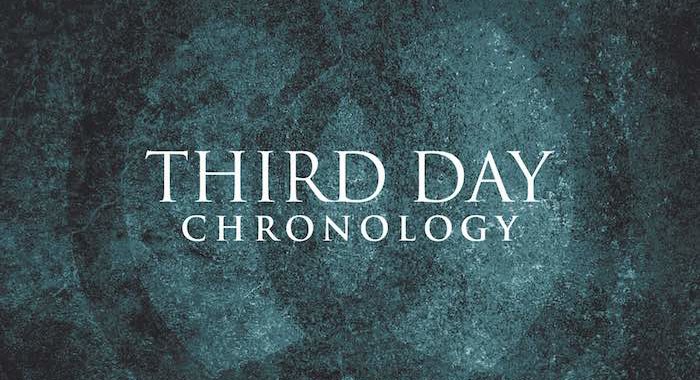
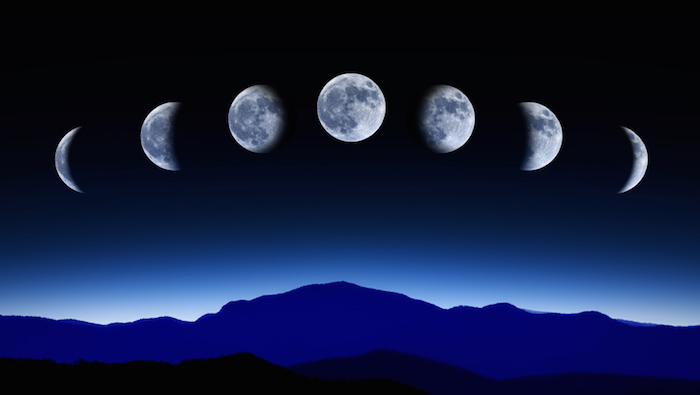
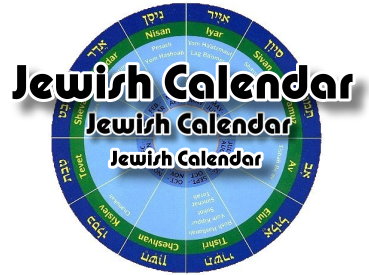
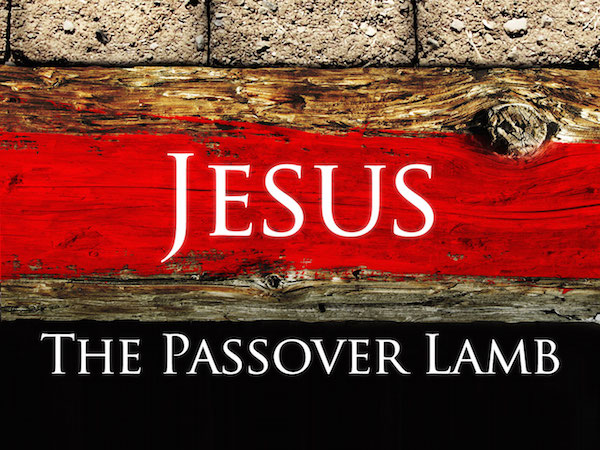
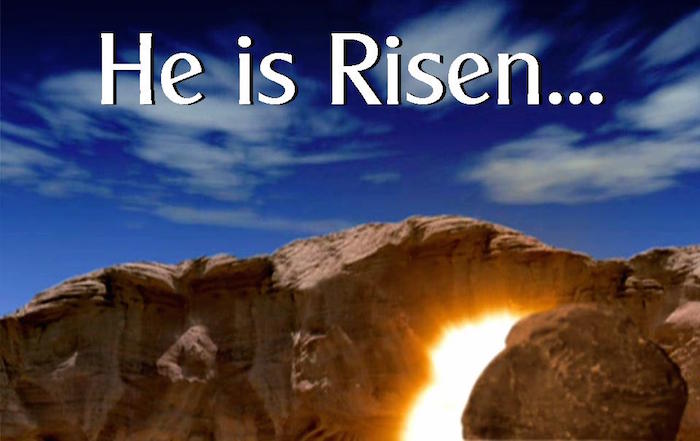
I am a Gentile who simply wants to learn all I can about my Savior, Jesus Christ.
One thing the Holy Spirit has shown me in reading your article, is that we Gentiles interpret “day” differently from Jews. To us, a “day” is a 24 hour period which begins in a morning and ends the following morning.
To the Lord, a Jew, there is a separation between “day” and “night”, each being approximately 12 hours in length.
In studying the Essene calendar, as long as I read the days and nights as a Jew does, your article makes perfect sense.
If I look at it from the Gentile perspective, confusion steps in.
The Holy Spirit has used your article to help me understand the truth.
Thank you so much, and I pray our Father’s blessings for you and your family.
Margie S
What are the chronological events and times?